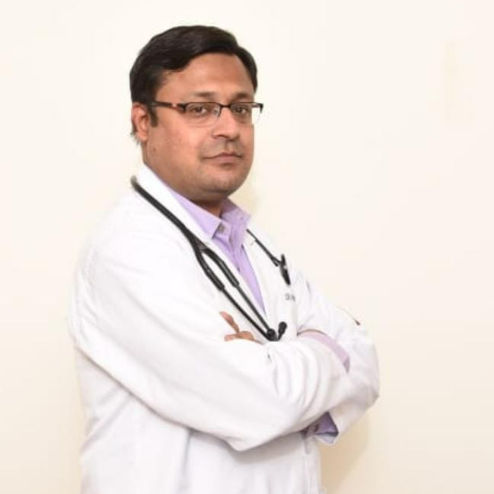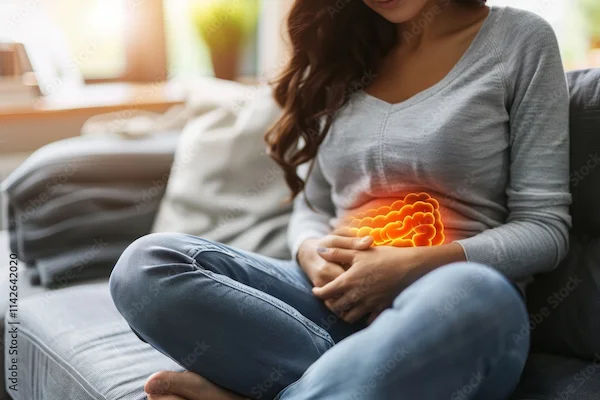Gallstones: Symptoms, Causes and Treatment
Learn everything you need to know about gallstones, from common symptoms like abdominal pain and nausea to the underlying causes. This guide also covers diagnosis and effective treatment options, including lifestyle changes and surgical procedures.

Written by Dr. Dhankecha Mayank Dineshbhai
Reviewed by Dr. Md Yusuf Shareef MBBS
Last updated on 13th Jan, 2026
.webp?tr=q-80,f-webp,w-350,dpr-2,c-at_max 700w)
Gallstones are small, hard deposits that form in the gallbladder—a small organ located beneath the liver. These stones can vary in size, from as tiny as a grain of sand to as large as a golf ball. While some people may have gallstones without any symptoms, others experience severe pain and complications. Understanding gallstones—their symptoms, causes, and treatment options—can help you take the right steps toward better health.
What Are Gallstones?
The gallbladder stores bile, a digestive fluid produced by the liver that helps break down fats. Gallstones form when there’s an imbalance in the substances that make up bile—such as cholesterol, bile salts, and bilirubin. When these substances harden, they create stones.
There are two main types of gallstones:
1. Cholesterol stones (most common, yellow-green in color).
2. Pigment stones (smaller, darker, made of bilirubin).
Symptoms of Gallstones
Many people with gallstones don’t experience symptoms (called "silent gallstones"). However, if a stone blocks a bile duct, it can cause:
Sudden, intense pain in the upper right abdomen or center of the stomach (called biliary colic).
Pain that radiates to the back or right shoulder.
Nausea or vomiting.
Indigestion, bloating, or gas.
Jaundice (yellowing of skin or eyes) if a stone blocks the bile duct.
Fever or chills (signs of infection).
If you experience severe or persistent pain, seek medical help immediately, as it could indicate complications like cholecystitis (inflamed gallbladder) or pancreatitis.
Consult a gallstone specialist for personalized tips
What Causes Gallstones?
Several factors increase the risk of developing gallstones:
Diet high in cholesterol or fat– Excess cholesterol in bile can form stones.
Obesity– Increases cholesterol levels in bile.
Rapid weight loss – Causes the liver to release extra cholesterol.
Pregnancy– Hormonal changes slow gallbladder emptying.
Diabetes or liver disease– Affects bile composition.
Family history– Genetics play a role.
Being female– Women are more prone due to estrogen effects.
How Are Gallstones Diagnosed?
If you have symptoms, your doctor may recommend:
Ultrasound – The most common test to detect gallstones.
Blood tests – To check for infection or jaundice.
CT scan or MRI – For detailed images if complications are suspected.
HIDA scan – Checks gallbladder function.
Treatment Options for Gallstones
1. No Treatment (For Silent Gallstones)
If gallstones aren’t causing symptoms, treatment may not be needed. However, regular check-ups are advised.
2. Medications
Ursodeoxycholic acid – Helps dissolve small cholesterol stones over time (takes months/years).
Pain relievers – For managing discomfort.
3. Surgery (Most Effective Treatment)
Laparoscopic cholecystectomy – Minimally invasive removal of the gallbladder (most common treatment).
Open surgery is rarely needed, only in complex cases.
The gallbladder isn’t essential for digestion, so most people live normally after removal.
4. Non-Surgical Procedures
ERCP (Endoscopic Retrograde Cholangiopancreatography) – Removes stones blocking bile ducts.
Shock wave lithotripsy – Breaks stones with sound waves (rarely used).
Lifestyle & Dietary Tips to Prevent Gallstones
Few lifestyle factors include:
Eat a balanced diet – Include fiber (fruits, vegetables, whole grains) and healthy fats (avocados, nuts).
Avoid fatty, fried, or processed foods – Reduces cholesterol buildup.
Maintain a healthy weight – Avoid rapid weight loss.
Stay hydrated – Helps keep bile fluid.
Exercise regularly – Supports digestion and weight management.
When to See a Doctor?
Consult a doctor if you experience:
Severe abdominal pain lasting more than a few hours.
Jaundice (yellow skin/eyes).
High fever with chills.
Persistent nausea/vomiting.
If you suspect gallstones, Apollo 24|7 offers easy online consultations and diagnostic tests. You can book an appointment with a specialist to discuss your symptoms and treatment options.
Final Thoughts
Gallstones can be painful, but with the right diagnosis and treatment, they are manageable. If you’re at risk or experiencing symptoms, don’t ignore them—early medical advice can prevent complications. A healthy diet, regular exercise, and proper medical care can help keep your gallbladder in good shape.
If you need expert guidance, Apollo 24|7 is here to help—schedule a consultation today for personalized care. Stay informed, stay healthy!
Would you like to book a test or speak to a doctor? Visit Apollo 24|7 for quick and reliable healthcare support.
Consult a gallstone specialist for personalized tips
Consult a gallstone specialist for personalized tips

Dr Bhargav Vuppumalla
General Physician/ Internal Medicine Specialist
5 Years • MBBS MD GENERAL MEDICINE
Bengaluru
Apollo Medical Center, Marathahalli, Bengaluru

Dr Harish K C
Gastroenterology/gi Medicine Specialist
15 Years • MBBS MD DM MRCP(UK) (SCE-Gastroenterology and Hepatology)
Bengaluru
Apollo Hospitals Bannerghatta Road, Bengaluru

Dr. Shivaraj Afzalpurkar
Gastroenterology/gi Medicine Specialist
13 Years • MBBS, MD General medicine (Gold medalist), DrNB (Gastroenterology), MNAMS
Bengaluru
Apollo Clinic, JP nagar, Bengaluru

Dr Rohit Sureka
Gastroenterology/gi Medicine Specialist
15 Years • MBBS, DNB General Medicine, DNB Gastroenterology
Jaipur
Apollo 247 virtual - Rajasthan, Jaipur

Dr Piyush Vishwakarma
Gastroenterology/gi Medicine Specialist
11 Years • MBBS, MD, DrNB,
Delhi
Apollo Hospitals Indraprastha, Delhi


